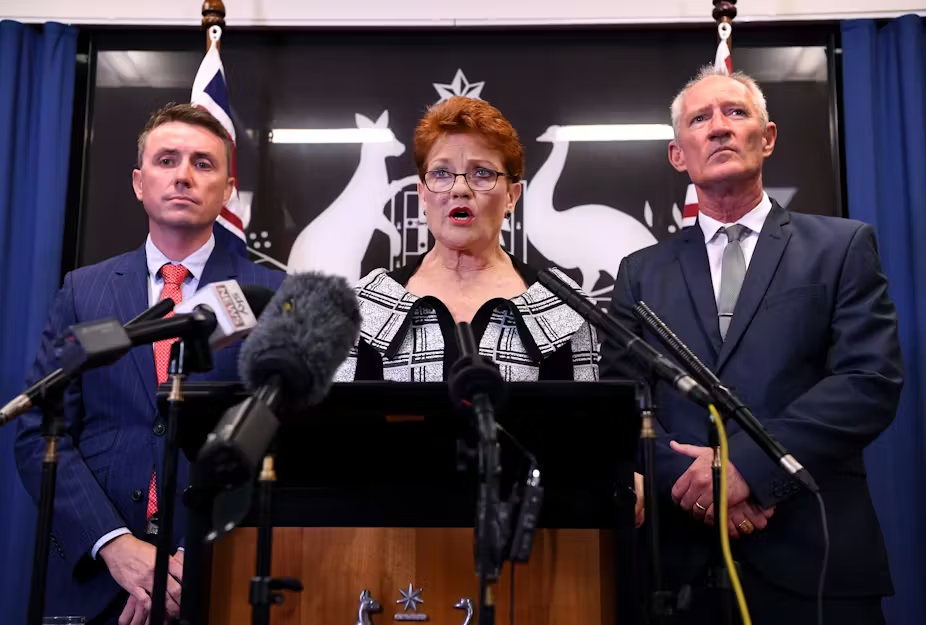In the rapidly evolving world of politics, the role of articles — whether in newspapers, magazines, blogs, or online platforms — cannot be overstated. These written pieces not only report facts but also play a critical role in shaping, influencing, and sometimes even distorting political narratives. Articles, when well-crafted and strategically framed, can drive public opinion, sway elections, and influence policy decisions. As the cornerstone of modern media, they are powerful tools for politicians, journalists, and citizens alike, helping to shape the narrative surrounding political issues and events.
The Power of Framing: How Articles Shape Political Reality
The concept of “framing” refers to how information is presented and structured within an article. It is not just the facts that matter, but how they are interpreted and contextualized. Through framing, articles can highlight certain aspects of a political issue while downplaying others, thereby shaping how the public understands and reacts to that issue.
For instance, during an election, the way in which a candidate is portrayed can significantly affect their public image. A news article that emphasizes a candidate’s leadership qualities, vision, and integrity may present them as the right choice for voters. Conversely, an article that focuses on a candidate’s scandals, gaffes, or alleged ties to controversial figures might paint a different picture. This framing effect plays into the broader narrative of the election, influencing how voters perceive the candidates and their platforms.
The framing effect is powerful because it taps into cognitive biases. People are not passive recipients of information; they are influenced by how information is structured. The headline, the choice of adjectives, the sequence of events, and the overall tone all contribute to shaping how readers interpret the news.
Selective Reporting: Choosing Which Stories Matter
Articles also contribute to the shaping of political narratives by selectively reporting on certain issues while ignoring others. This selective attention to certain topics is not always an act of omission but often a deliberate editorial choice that reflects ideological leanings or commercial interests.

For example, in an election year, some media outlets might focus extensively on economic policies and candidates’ plans for job creation, while others may highlight social issues such as healthcare or education reform. This selective coverage creates a narrative about what issues are “important” in the political discourse. When certain issues are given more media attention, they gain more salience in the minds of the public, while others fade into the background.
Moreover, the way an article highlights or downplays certain stories can also contribute to the creation of a “political agenda.” By framing the narrative around specific topics, articles can influence the public’s perception of what issues require attention from politicians. The media, therefore, is not merely a passive informer; it is an active participant in the shaping of political priorities.
The Role of Opinion Articles and Editorials
While news articles are expected to be objective, opinion articles and editorials provide an opportunity for journalists, experts, and commentators to directly influence political narratives. These types of articles are often more persuasive in nature, as they advocate for a particular point of view, and they play a key role in shaping the ideological and partisan divide in politics.
Opinion articles give political analysts, pundits, and even everyday citizens a platform to present their personal views on current issues. These pieces can have a strong impact on the political narrative by reinforcing or challenging existing narratives. For instance, a well-written editorial supporting climate change legislation can frame the issue as one of urgent moral and economic necessity, whereas an editorial criticizing such legislation can frame it as an overreach by government officials or a hindrance to economic growth.
The power of opinion articles lies in their ability to provide a lens through which the public can interpret political issues. They give readers a framework for understanding complex topics and offer arguments that may either confirm their existing beliefs or challenge them to reconsider their views. In this way, opinion articles help to deepen the political discourse by providing diverse perspectives and insights.
The Role of Digital Media in Political Narratives
In the digital age, articles are no longer confined to print media or traditional broadcast news. With the rise of the internet, blogs, and social media platforms, political narratives are now being shaped by an entirely new ecosystem of online content. Digital articles have the ability to reach a global audience instantly, and the way they are shared and commented on can amplify their impact on political discourse.
Online articles often go viral, and once an article is shared widely on social media platforms like Twitter or Facebook, it has the potential to become a key part of the political conversation. The speed at which these articles spread can quickly shift the political narrative on a particular issue. For example, an article that highlights an injustice or exposes political corruption can spark a public outcry and lead to calls for accountability.
However, digital media also has its pitfalls. The rise of clickbait, misinformation, and biased reporting has raised concerns about the role of online articles in shaping political narratives. While some articles aim to inform and educate, others may intentionally mislead readers or cater to pre-existing biases. This has given rise to the phenomenon of “echo chambers,” where people only consume articles that align with their political views, reinforcing their existing beliefs and creating ideological silos.
The Impact of Articles on Political Polarization
One of the most concerning trends in recent years is the increasing political polarization fueled by articles in the media. As the political landscape becomes more divided, articles often contribute to the deepening of these divides. Many articles are written in a way that plays into the “us versus them” mentality, which exacerbates partisan tensions and makes it harder for people to engage in meaningful discussions about political issues.
Articles that pit political parties or ideological groups against each other can create a narrative of constant conflict and division. This type of reporting reinforces the idea that the political “other” is a threat to the nation’s values, identity, or future. By focusing on the most sensational and divisive aspects of political stories, these articles contribute to the increasing polarization of the electorate.

At the same time, articles that present a more balanced or nuanced view of political issues can help bridge the divide. By presenting multiple perspectives and highlighting common ground, such articles can foster understanding and cooperation across political lines.
The Ethics of Political Journalism: Balancing Objectivity and Influence
As the role of articles in shaping political narratives grows, so too does the responsibility of journalists to maintain ethical standards. Political journalism must walk a fine line between informing the public and influencing political outcomes. While it is important to present facts and offer a platform for diverse opinions, journalists must also be wary of falling into the trap of sensationalism, bias, or manipulation.
In an era where “fake news” and misinformation are rampant, maintaining journalistic integrity is more important than ever. Articles that deliberately distort the facts or promote conspiracy theories undermine public trust in the media and can have serious consequences for democratic societies. Journalists must strive to report the truth, present multiple sides of an issue, and avoid letting personal biases influence their coverage.
Conclusion: The Ongoing Evolution of Political Narratives
Articles have always played an essential role in shaping political narratives, and their influence is only growing in the digital age. From traditional print media to online platforms, articles continue to be a primary means through which political discourse is shaped, debated, and disseminated. Whether through framing, selective reporting, opinion pieces, or digital content, articles have the power to influence public opinion, sway elections, and alter the course of political events.
As we move further into the 21st century, the role of articles in shaping political narratives will only become more complex. The rise of digital media, the spread of misinformation, and the increasing polarization of politics present both challenges and opportunities for journalists. As consumers of news, it is important for us to be aware of the ways in which articles shape our understanding of political issues and to approach media with a critical eye.
By fostering an informed and responsible media landscape, we can ensure that articles continue to serve as tools for civic engagement, rather than instruments of division or manipulation.












































